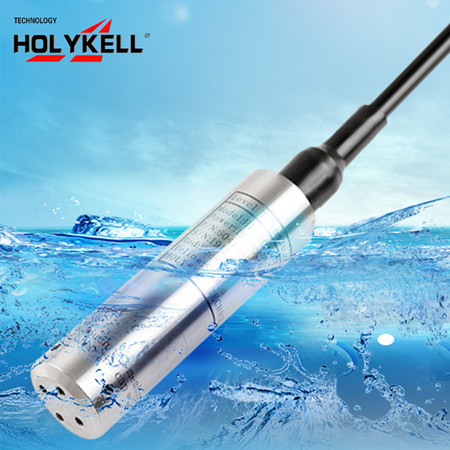Advantages and applications of submersible water level sensor
Submersible water level sensor is a kind of pressure sensor for measuring liquid level. It can convert the changes of various object level parameters into standard current signal, which can be transmitted to the operation control room for centralized display, alarm or automatic control by secondary instrument or computer. It has a good structure and installation, can be applicable to high temperature, high pressure, strong corrosion, easy crystallization, anti-clogging, anti-cold condensation and solid powder, granular material and other special conditions of the continuous detection of liquid level, material level or material level, so it is widely used in a variety of industrial processes in the detection and control.
Advantages of submersible water level sensor
1.Its full degree, zero long-term stability up to 0.2%FS/ year.In the range of compensation temperature 0 ~ 70 ℃, the temperature drift is less than 0.1%FS, and less than 0.3%FS in the whole allowable operating temperature range.
2.With reverse protection and current limiting protection circuit, the positive and negative connection will not damage the transmitter during installation, and the transmitter will automatically limit the current within 35MA when abnormal.
3.Its solid structure has strong reliability and long service life.
4.Easy installation, simple structure, economical and durable.

Applications of Submersible water level sensor
Submersible water level sensor is widely used to measure and control the liquid level in rivers, underground water tables, reservoirs, water towers and containers, etc. It is a kind of sensor that can convert liquid level by measuring liquid pressure. The principle is that the static pressure of the measured liquid is proportional to the height of the liquid.When choosing an submersible water level sensor, the application should be investigated first. If it is used in a corrosive environment, the sensor should be selected with a high level of protection and anti-corrosion sensor. The size of the range of the level sensor and the requirements of the interface should also be paid attention to.
Related Posts
How to Select the Right Level Sensor for Tanks
Top 5 Level Sensors for Storage Tanks
Understanding Storage Tanks Types: Helpful for Selecting Right Level Sensors





